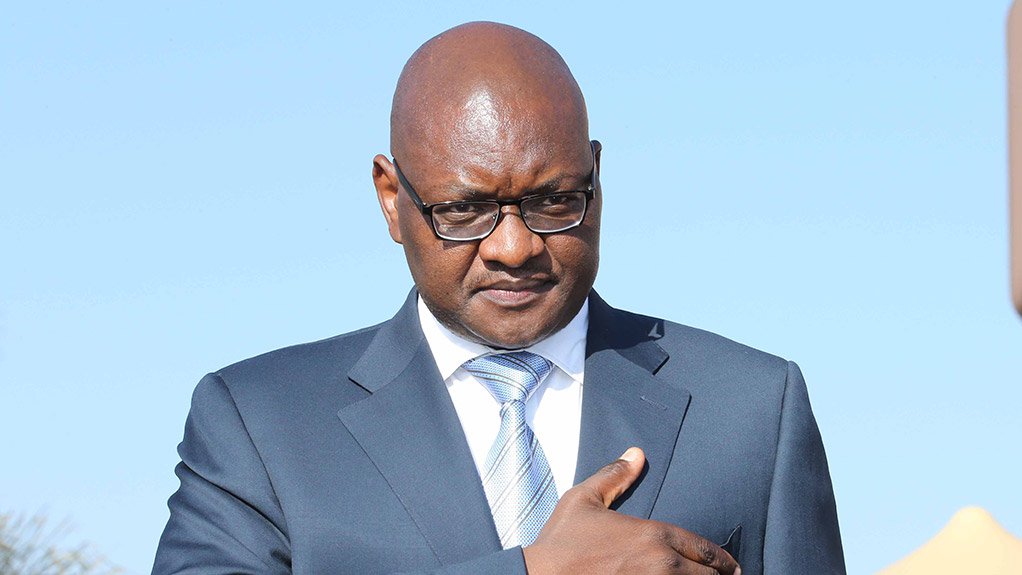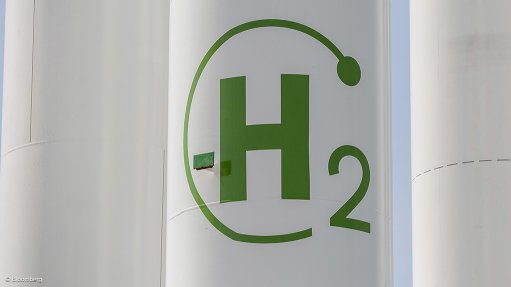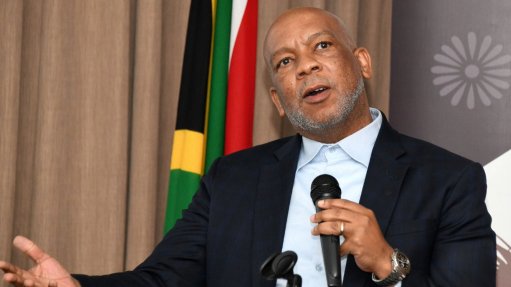E-toll system ‘unaffordable, inequitable’, panel finds
A panel of transport experts tasked last year by Gauteng Premier David Makhura with determining the impact of e-tolls on the province has described the current system as “unaffordable and inequitable”, adding in a report made public on Thursday that it placed a disproportionate financial burden on low- and middle-income households.
In a summary of its primary findings, the panel described the e-toll system as “administratively too cumbersome”, despite noting that there had been a general acceptance of the user-pays principle and a willingness by road users to pay for current and future upgrades of roads and public transport infrastructure.
It further found that the implementation of the Gauteng Freeway Improvement Project (GFIP) had benefited the economy and the people of the province by reducing travel time, improving fuel efficiency, reducing vehicle operating costs and improving logistics for businesses.
Summarising the primary recommendations of the panel, Makhura told a media briefing in Johannesburg that it had advised that the current e-toll system be reviewed to address issues of affordability, equity, fairness, administrative “simplicity” and sustainability.
The panel’s report contained over 50 recommendations, he added, and addressed issues such as public transport, infrastructure, environmental sustainability and spatial integration of the province.
After receiving the report at the end of November last year, Makhura said the Gauteng Executive Council had mandated him to undertake initial briefing sessions with central government and the affected metropolitan municipalities – Ekurhuleni, Johannesburg and Tshwane – to discuss the findings and recommendations of the report.
The council then reconvened on Thursday to receive feedback on these briefings and plot a way forward.
Elaborating on the decisions made by the council, the Premier told journalists that the provincial government would now work in collaboration with central government, represented by Deputy President Cyril Ramaphosa, and the affected metropoles to consider the recommendations and their repercussions.
This would include investigating the possible application of a “hybrid funding model” with various revenue streams, the provision of additional funding from government, or the introduction of a flat rate for GFIP users.
Possibilities in this regard included significantly lowering the monthly cap, lowering or eliminating the higher rates for nontagged users, reducing tolls for every gantry, ending e‐toll collection at certain gantries and introducing rebates or exemptions for low‐income, or low- and middle‐income users.
Importantly, the panel added that all of the funding for the first phase of the GFIP should be provincially sourced.
“We’re exploring other sources of revenue [to pay for the GFIP] and there are many [possible] mechanisms,” Makhura advised.
Financial modelling was currently being undertaken to determine the viability of each, or all, of these options.
“In keeping with the commitment to consult with people on matters that affect them, we will, in February, convene a consultative meeting with all stakeholders that made submissions [to the panel] to consider the recommendations and their full implications, including the best funding model.
“Having concluded this process, government will make an announcement on the recommendations,” Makhura said, suggesting that the announcement would be made by the end of February.
The formation of the panel last year had made public an apparent clash of positions on e-tolling between the Gauteng provincial government (GPG) and the Department of Transport (DoT), the latter of which remained steadfast in support of the funding mechanism and was largely considered in this case to represent the stance of central government.
“[The e-tolls system is] not a perfect solution, but it is lawful and wasn’t undertaken without thought and consideration. The work done on the highways in Gauteng cannot be done ‘gratis’.
“[Government] did consider alternatives to the user-pays principle, such as the ring-fencing of the fuel levy, but decided against it for several reasons,” Transport Minister Dipuo Peters told the e-toll review panel in November.
Makhura assured journalists on Thursday that both the GPG and central government structures were working together to determine the best way forward.
“We are working with national government and consulting with stakeholders…to find common ground. At the end of this process, government will make an announcement, and I emphasise government here, as we’re working with national [structures] as well as the metropoles.
“I am confident that Ramaphosa will drive the process at a central government level,” he asserted.
He cautioned that, while the panel had found e-toll concerns to be “legitimate”, he encouraged users to continue to pay into the system until the consultation process had been concluded at the end of February.
Moreover, the Premier noted that, should the e-toll system be scrapped, the gantries along GFIP roads would never become “a wasted investment”.
“The gantries will never become white elephants, they are already useful as intelligent transport systems,” he said.
Comments
Announcements
What's On
Subscribe to improve your user experience...
Option 1 (equivalent of R125 a month):
Receive a weekly copy of Creamer Media's Engineering News & Mining Weekly magazine
(print copy for those in South Africa and e-magazine for those outside of South Africa)
Receive daily email newsletters
Access to full search results
Access archive of magazine back copies
Access to Projects in Progress
Access to ONE Research Report of your choice in PDF format
Option 2 (equivalent of R375 a month):
All benefits from Option 1
PLUS
Access to Creamer Media's Research Channel Africa for ALL Research Reports, in PDF format, on various industrial and mining sectors
including Electricity; Water; Energy Transition; Hydrogen; Roads, Rail and Ports; Coal; Gold; Platinum; Battery Metals; etc.
Already a subscriber?
Forgotten your password?
Receive weekly copy of Creamer Media's Engineering News & Mining Weekly magazine (print copy for those in South Africa and e-magazine for those outside of South Africa)
➕
Recieve daily email newsletters
➕
Access to full search results
➕
Access archive of magazine back copies
➕
Access to Projects in Progress
➕
Access to ONE Research Report of your choice in PDF format
RESEARCH CHANNEL AFRICA
R4500 (equivalent of R375 a month)
SUBSCRIBEAll benefits from Option 1
➕
Access to Creamer Media's Research Channel Africa for ALL Research Reports on various industrial and mining sectors, in PDF format, including on:
Electricity
➕
Water
➕
Energy Transition
➕
Hydrogen
➕
Roads, Rail and Ports
➕
Coal
➕
Gold
➕
Platinum
➕
Battery Metals
➕
etc.
Receive all benefits from Option 1 or Option 2 delivered to numerous people at your company
➕
Multiple User names and Passwords for simultaneous log-ins
➕
Intranet integration access to all in your organisation





















